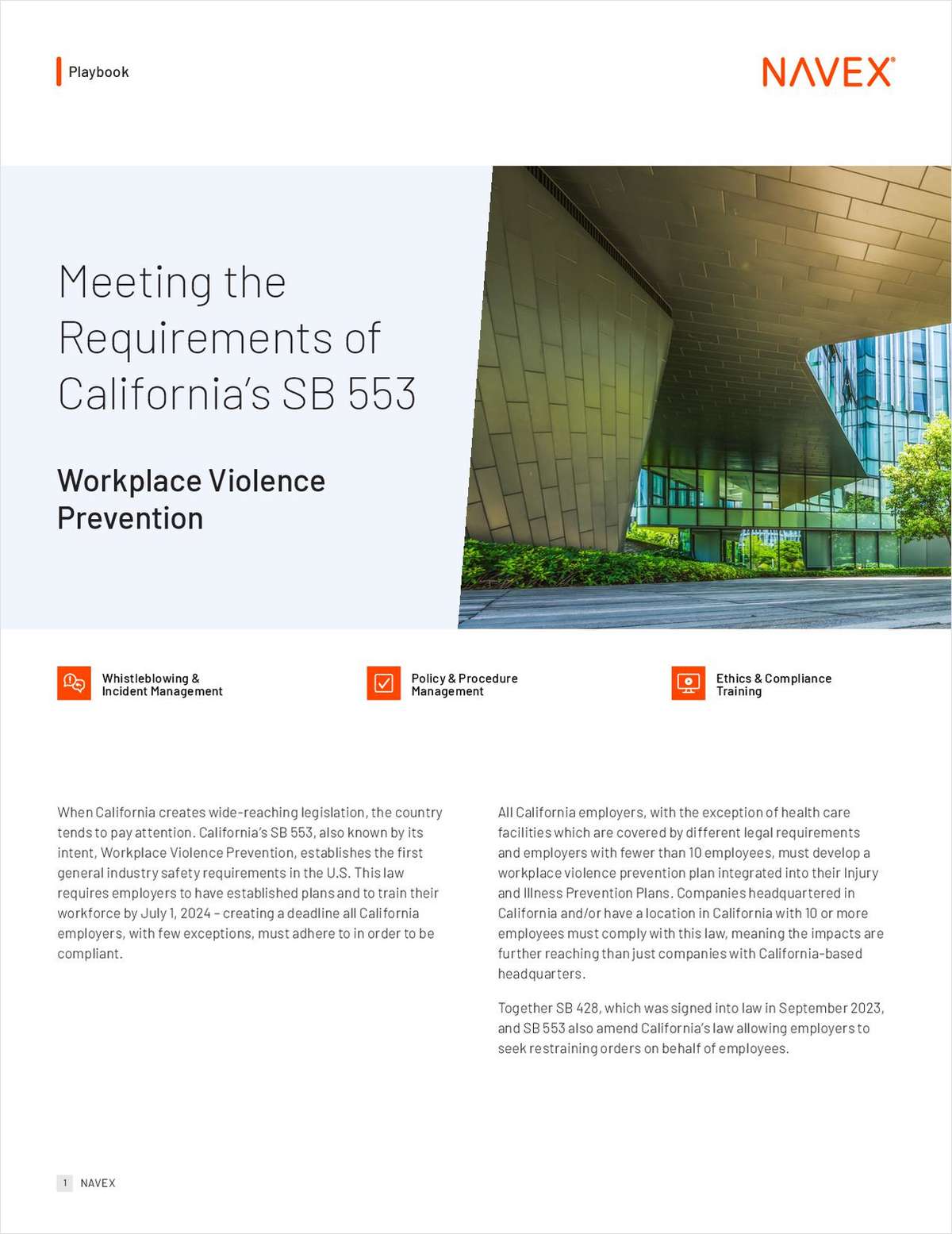 A National Rifle Association logo on display at the NRA annual meeting in Dallas in May. Photo: Daniel Acker/Bloomberg L.P.
A National Rifle Association logo on display at the NRA annual meeting in Dallas in May. Photo: Daniel Acker/Bloomberg L.P.NRA Argues Discovery Could Show State Coerced Companies to Cut Ties
An assistant attorney general said the NRA is attempting through the lawsuit “to stifle Governor Cuomo and Superintendent Vullo's political and government speech.”
September 10, 2018 at 02:51 PM
6 minute read
The original version of this story was published on New York Law Journal
Attorneys for the National Rifle Association argued in federal court on Monday that evidence sought through discovery in their lawsuit against New York Gov. Andrew Cuomo and a state agency could show a deliberate effort to dismantle the gun lobby group through official state actions.
Sarah Rogers, an attorney with Brewer Attorneys & Counselors, made the argument in a hearing on the state's motion to dismiss the lawsuit. U.S. District Judge Thomas McAvoy of the Northern District of New York did not rule from the bench and said a decision would come soon.
The NRA sued the state in May over claims that Cuomo and state Department of Financial Services Superintendent Maria Vullo acted to financially impair the association through official state actions, which the gun lobby has said will limit its ability to advocate on behalf of gun owners in New York.
Among those actions were two letters sent by Vullo, a set of press releases from state offices, and a pair of consent orders between DFS and two insurance providers.
Vullo sent the letters to the state's insurers and banks in April that asked them to reconsider any business relationship they had with the NRA or any similar gun lobby group. The letters were accompanied by a press release from Cuomo's office.
“The department encourages its chartered and licensed financial institutions to continue evaluating and managing their risks, including reputational risks, that may arise from their dealings with the NRA or similar gun promotion organizations, if any, as well as continued assessment of compliance with their own codes of social responsibility,” Vullo wrote in one of the letters.
Adrienne Kerwin, an assistant attorney general, argued that the letters neither demanded any action by the financial institutions nor warned of any retaliation by the state—two claims the NRA has challenged in past briefs.
“No reading of the guidance letters or press releases can be perceived as a threat,” Kerwin said. “When read objectively, the guidance letters do not demand any action.”
McAvoy asked Kerwin about the state agency's decision to focus on the reputation of companies in relation to the NRA.
“Why is 'reputational' important?” McAvoy said.
“Reputation goes to a company's bottom line,” Kerwin said. “It's necessary to think what customers might relate the company to.”
She argued that the letter was an effort by DFS to preserve the financial stability of those companies, which is a responsibility of the state agency. Kerwin said after the mass shooting in Parkland, Florida, earlier this year, companies nationwide were evaluating the reputational risks of doing business with the NRA.
The difference, Rogers said, is that in the case of New York, state officials were trying to influence those companies to cut ties with the NRA. She pointed to the press release that accompanied the guidance letters.
In the letter, Vullo encouraged the state's financial institutions “to take prompt actions to manage these risks and promote public health and safety,” while speaking about the NRA. Kerwin argued that the letter did not demand that insurers or banks take action, but that they should consider whether having a relationship with the NRA would be bad for business.
Rogers said that doesn't match up with the press release accompanying the letter. Vullo's language in the press release, she argued, is more targeted.
“DFS urges all insurance companies and banks doing business in New York to join the companies that have already discontinued their arrangements with the NRA, and to take prompt actions to managing these risks and promote public health and safety,” Vullo said in the release.
Rogers argued that even if neither communication explicitly directs those companies to cut ties with the NRA, the implication is enough to infer intent.
“Incurring the favor and disfavor of DFS is going to be very important to any insurer in New York,” Rogers said.
She said allowing their lawsuit to move forward with discovery would give them the opportunity to gather evidence that could confirm their presumptions.
“We have reason to believe … they had some sort of communication with regulators,” Rogers said of insurers.
Rogers alleged that an executive from Lockton Cos. told an NRA official during a phone call that Lockton was worried it would lose its license with the state if it continued to offer insurance products tied to the gun lobby group. Losing business with companies like Lockton, which had partnered with the NRA for decades, is the result the state wanted for the NRA, Rogers said. She said losing those partnerships will limit its ability to advocate for gun rights in New York.
Kerwin argued that it's the NRA, not Cuomo and Vullo, who is attempting to violate the First Amendment. She said public statements against the NRA from Cuomo are political speech and official actions from Vullo and DFS are government speech, both of which are protected under the First Amendment.
“Political speech is exactly what the First Amendment aims to protect, not penalize,” Kerwin said. “The complaint fails to allege that the guidance letters and press releases are anything but government speech protected by the First Amendment.”
Kerwin went as far as to say that the NRA is attempting through the lawsuit “to stifle Governor Cuomo and Superintendent Vullo's political and government speech.”
Rogers said the lawsuit isn't targeted at Cuomo for opposing their political positions. She said it's over the state regulations the NRA has argued will limit its advocacy efforts against Cuomo and other supporters of stricter gun laws in New York.
“The NRA does not sue Governor Cuomo for criticizing it,” Rogers said. “What he can't do is issue official regulatory directives.”
William Brewer III from Brewer, Attorneys & Counselors in Dallas and New York City is the lead attorney for the NRA in the case. He said after court the NRA is optimistic the state's motion to dismiss will be rejected.
“We are optimistic because he's a great judge,” Brewer said of McAvoy.
Related:
This content has been archived. It is available through our partners, LexisNexis® and Bloomberg Law.
To view this content, please continue to their sites.
Not a Lexis Subscriber?
Subscribe Now
Not a Bloomberg Law Subscriber?
Subscribe Now
NOT FOR REPRINT
© 2024 ALM Global, LLC, All Rights Reserved. Request academic re-use from www.copyright.com. All other uses, submit a request to [email protected]. For more information visit Asset & Logo Licensing.
You Might Like
View All
Google Fails to Secure Long-Term Stay of Order Requiring It to Open App Store to Rivals

Orrick Secures Summary Judgment for RingCentral in Privacy Class Action

NY Lateral Partner Moves Spike, Especially in PE and Funds Practices

'That's Not the Job' for the DOL: Crop of Suits Against Biden Administration
6 minute readTrending Stories
- 1The Law Firm Disrupted: Playing the Talent Game to Win
- 2A&O Shearman Adopts 3-Level Lockstep Pay Model Amid Shift to All-Equity Partnership
- 3Preparing Your Law Firm for 2025: Smart Ways to Embrace AI & Other Technologies
- 4BD Settles Thousands of Bard Hernia Mesh Lawsuits
- 5A RICO Surge Is Underway: Here's How the Allstate Push Might Play Out
Featured Firms
Law Offices of Gary Martin Hays & Associates, P.C.
(470) 294-1674
Law Offices of Mark E. Salomone
(857) 444-6468
Smith & Hassler
(713) 739-1250








